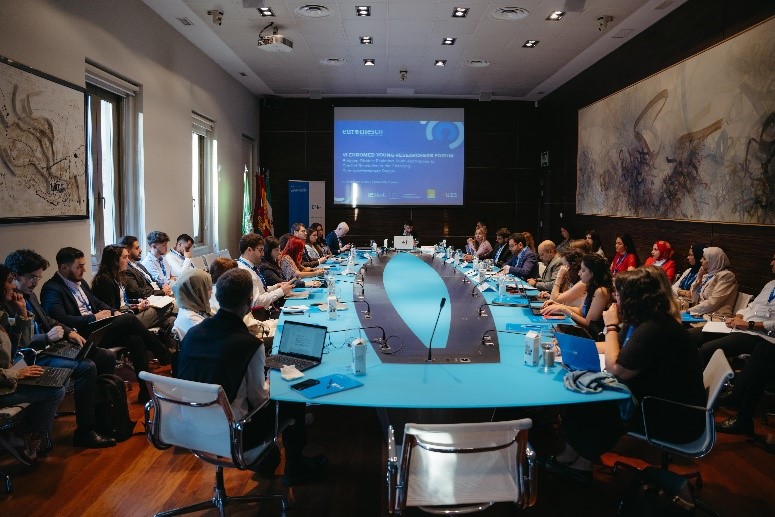EuroMeSCo publishes a series of Policy Briefs on youth and conflict resolution in the Euro-Mediterranean Region

EuroMeSCo has published a series of Policy Briefs following the VI Euromed Young Researchers Forum on “Bridging Divides: Exploring Youth Approaches to Conflict Resolution in the Changing Euro-Mediterranean Region”.
The Youth, Peace, and Security (YPS) Agenda’s impact on youth involvement in conflict resolution is explored by Jusaima Moaid-azm Peregrina. The brief Meaningful Inclusion? Enhancing the Youth, Peace, and Security Agenda in Euro-Mediterranean Conflict Resolution focuses on Euro-Mediterranean regions, specifically post-Arab Spring Yemen, and Libya.
What about Women? Pursuing the Women, Peace, and Security (WPS) Agenda in the Euro-Mediterranean Region, the Policy Brief by Mariam Mecky, delves into the Women, Peace, and Security (WPS) Agenda in the Euro-Mediterranean region, particularly focusing on the progress and potential of United Nations Security Council Resolution 1325 (UNSCR 1325).
In the brief Social Media as an Instrument for Youth-Led Conflict Resolution in the Southern Neighbourhood
Abdullatif Sleibi analyses the weaponisation of social media platforms (e.g., Facebook, X, TikTok, Telegram, YouTube, WhatsApp), and their influence on conflict settings, through increasingly frequent and sophisticated misinformation and disinformation campaigns.
Reviving Alternative Conflict Resolution Approaches in Proxy Wars: The Case of Libya, by Pablo Pastor, reviews conflict resolution attempts and argues that previous fora looking for a peaceful resolution have been unsuccessful due to the lack of human rights and bottom-up approaches in foreign policymaking.
In the brief EU Policy in North Africa and Eastern Mediterranean: Balancing Differentiated Integration for Conflict Resolution and Democracy Support, Valentina Gruarin looks into the complex network of institutional and non-institutional actors involved in the EU’s foreign policy and call for increased socio-political integration.
